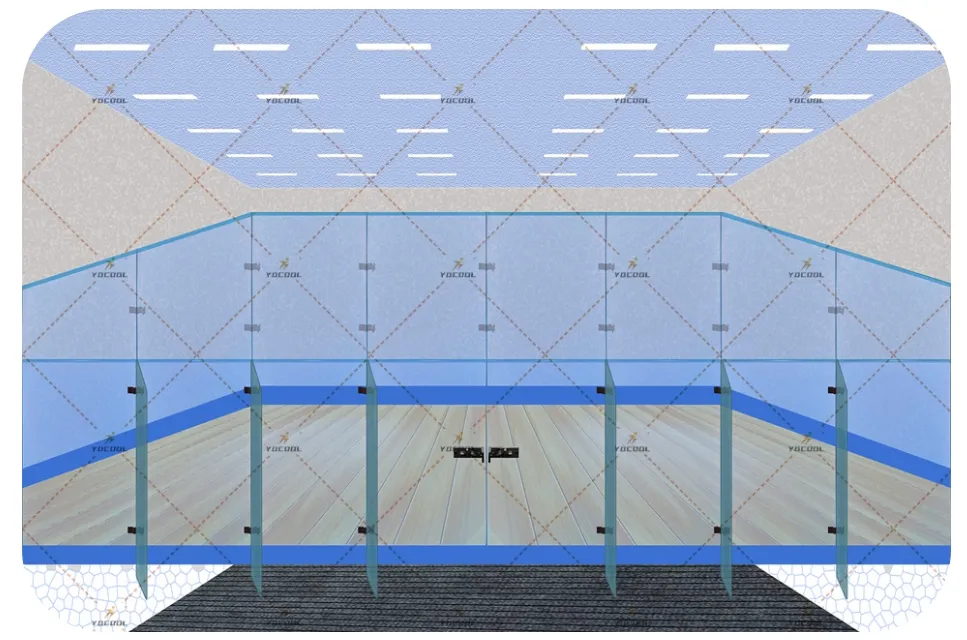

In modern urban planning and industrial recreation infrastructure, athletic facilities are no longer optional—they are essential. Increasingly, institutions such as sports academies, industrial parks, and recreational developments are integrating squash court infrastructure into their plans. Squash, once reserved for elite clubs, is now seen as a compact, high-intensity sport suitable for corporate wellness programs, employee fitness initiatives, and community engagement. A well-constructed squash court, built with industrial-grade materials, represents a forward-thinking investment in health, productivity, and property value.

Within the evolving landscape of multi-purpose recreational facilities, the demand for the squash court has grown rapidly due to its space efficiency and athletic appeal. Developers now consider squash a prime sport for indoor and hybrid sports complexes. A well-engineered squash court requires precision planning, particularly in flooring, wall rebound behavior, and ventilation. For industrial clients, integrating the squash court into larger development projects not only enhances usability but also offers year-round sports engagement in controlled environments. This aligns with the industrial need for scalable, low-maintenance amenities that deliver long-term value.
The concept of a squash room offers an ideal solution for institutions and industrial clients seeking to optimize space. Rather than large stadiums or multi-court arenas, a squash room can be built into existing industrial or commercial buildings with relative ease. The rise of prefabricated components and modular court systems allows for faster deployment and easier maintenance. By installing a squash room within office campuses or training facilities, companies support employee well-being while maximizing the use of their architectural footprint.
An increasing number of industrial developers are installing a squash sport court as part of their wellness and corporate health initiatives. This shift aligns with global trends that emphasize mental and physical health in the workplace. A well-built squash sport court, engineered for durability and performance, provides a compact, high-impact athletic option that appeals to a wide demographic. The reduced court size compared to other sports minimizes construction and operational costs, making it an attractive addition to gyms, factories, training centers, and residential towers catering to industrial employees.
Understanding the variables that affect squash court price is crucial when planning an industrial sports facility. Materials such as high-density plaster for walls, sprung wooden floors, and reinforced glass panels can significantly affect cost. However, these components are essential to meet international standards and ensure long-term durability in high-usage environments. For industrial clients, the squash court price often reflects more than just materials—it includes transportation logistics, installation complexity, acoustic requirements, and ongoing maintenance considerations. Choosing quality over initial savings ensures the court remains safe and functional for decades.
While traditionally played indoors, the idea of the squash court outdoor model is gaining momentum in industrial parks, open-air recreational zones, and resort-style employee facilities. Industrial planners appreciate the squash court outdoor option because it eliminates the need for complex HVAC systems and leverages natural light. To ensure weather resistance and performance, these courts must use UV-resistant wall panels, anti-slip outdoor flooring, and steel-reinforced framing. When designed with climate in mind, outdoor squash courts offer a unique blend of energy efficiency and recreation.
Squash courts are compact, require less maintenance than most sports installations, and support year-round indoor activity. For industrial complexes, they serve as both a wellness solution and a property value enhancer. Employee usage can reduce health-related absences and improve morale, which directly supports operational productivity.
The choice between indoor and outdoor squash courts depends on climate, usage volume, and facility design. Indoor courts offer controlled conditions and standard performance, while outdoor formats provide energy savings and a more casual recreational atmosphere. Both have their merits, and hybrid options exist for adaptable use.
Industrial-grade squash courts typically require annual inspections and occasional floor refinishing, especially in high-traffic environments. Wall panels and flooring systems designed for impact resistance will extend the court’s usability to over 15 years, particularly when built with durable materials and properly ventilated spaces.
Q: What’s the average space required to build a squash room within an industrial complex?
A: A standard squash room requires approximately 62 square meters, including playing area and safety zones, making it ideal for compact locations within industrial buildings or training centers.
Q: How much does a squash court cost to install in industrial settings?
A: The squash court price ranges from $25,000 to $45,000 depending on materials, features, and location. Costs increase with outdoor designs due to weatherproofing and reinforced materials.
Q: Can a squash sport court be used for other sports or activities?
A: While primarily designed for squash, the enclosed space of a squash sport court can occasionally accommodate fitness routines, racket drills, and even wellness sessions when not in competitive use.
Q: Is it feasible to build a squash court outdoor in harsh climates?
A: Yes, but it requires weather-resistant materials, strategic drainage systems, and possibly a roof or canopy. Industrial sites with flexible design guidelines can implement such courts successfully.
Q: What are the maintenance challenges of squash court installations in industrial zones?
A: Key challenges include dust management, humidity control, and wear from frequent use. Using industrial-grade wall and floor materials minimizes these concerns and reduces annual maintenance costs.
Sports Facilities with High-Performance Indoor Racquetball and Squash Courts
Revolutionize Indoor Sports Facilities with Advanced Squash Court Installations
Master Industrial Sports Facilities with Pro Racquetball and Squash Solutions
Integration of High-Performance Squash Court Facilities
Industrial Innovation Begins with Durable Squash Court Construction
Discover Industrial-Grade Solutions for Racquet Sports Facilities